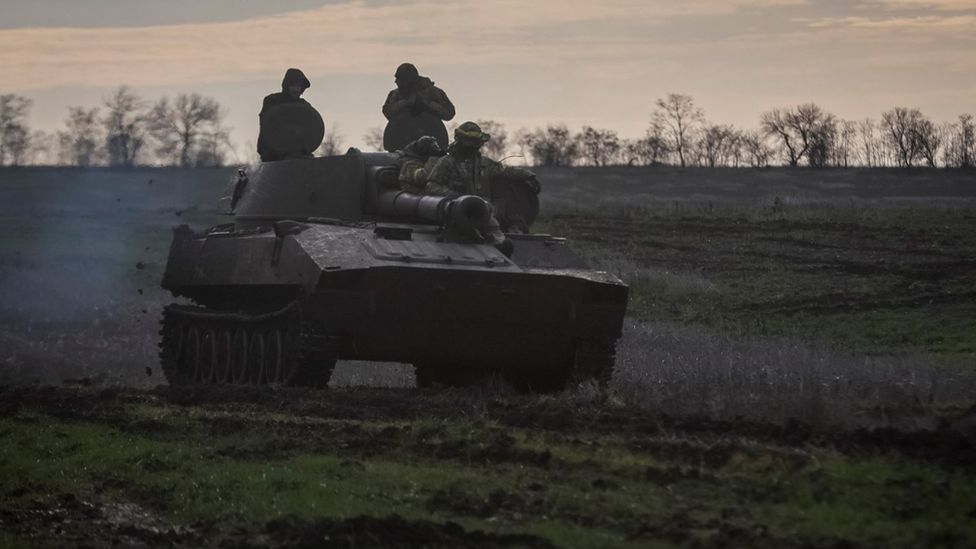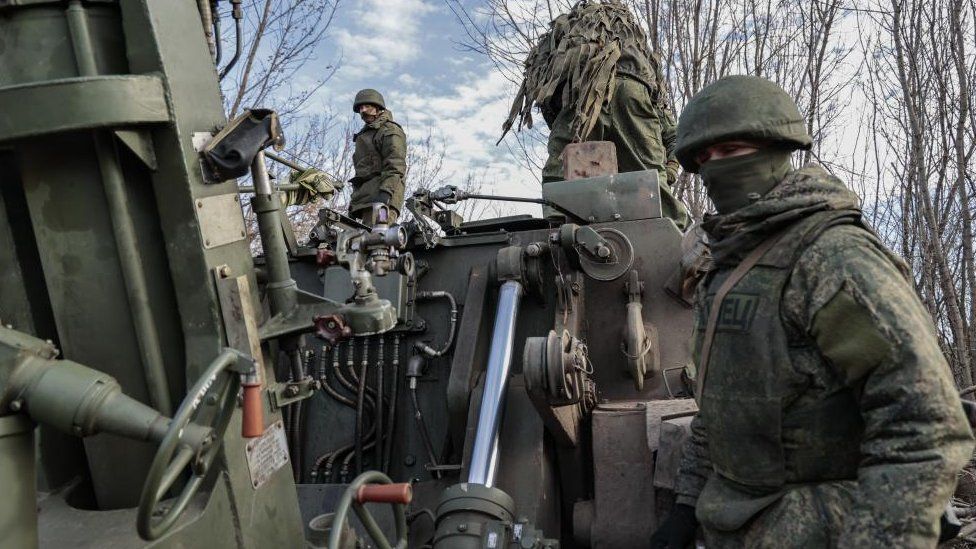
The fighting in Ukraine has been slowing down and this will likely continue in the coming winter months, US intelligence agencies believe.
However, there has been no evidence of fading resistance on the part of Ukrainian forces, US director of intelligence Avril Haines said.
She said both sides would try to “refit, resupply and reconstitute” for any counter-offensive in the spring.
The war in Ukraine is now in its ninth month, but Russia has lost more than half the land it seized.
Ms Haines told a defence forum in California that most of the fighting is currently around the Bakhmut and Donetsk region of eastern Ukraine.
She said fighting had slowed down following Russia’s withdrawal of troops from the west of the Kherson region last month.
“We’re seeing a kind of a reduced tempo already of the conflict… and we expect that’s likely to be what we see in the coming months,” she said.
She said both Ukraine and Russian militaries would be looking to to prepare for any counter-offensive after the winter.
“But we actually have a fair amount of scepticism as to whether or not the Russians will be, in fact, prepared to do that,” she said.
“I think more optimistically for the Ukrainians in that time frame.”
Ms Haines said US intelligence believes Russian President Vladimir Putin does not have a full picture at this stage of just how challenged his military are.
“We see shortages of ammunition, for morale, supply issues, logistics, a whole series of concerns that they’re facing.”
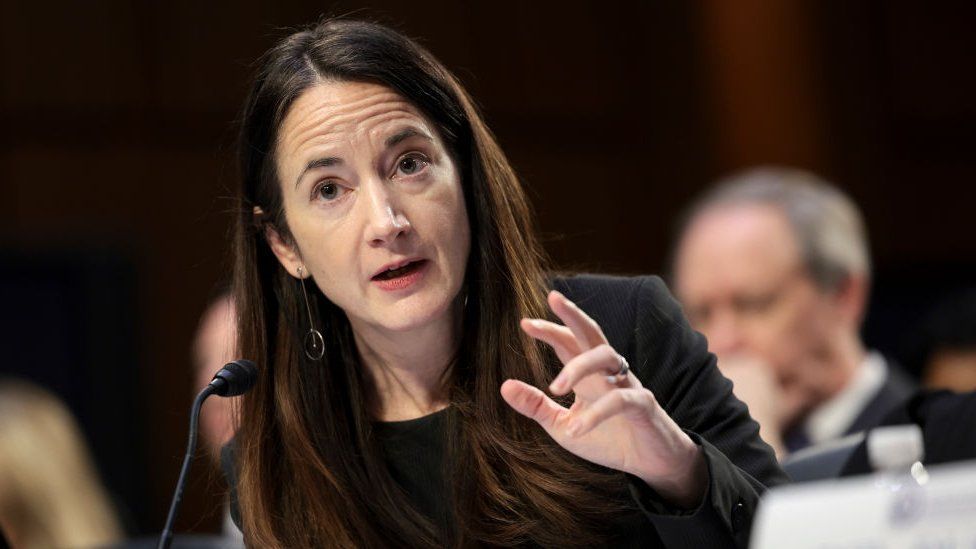
Meanwhile on Saturday, Ukraine President Volodymyr Zelensky described a price cap set by his Western allies on Russian oil exports as “weak” and said it was not “serious” enough to damage to the Russian economy.
The cap, due to come into force on Monday, is aimed at stopping countries paying more than $60 (£48) for a barrel of seaborne Russian crude oil.
Kremlin spokesman Dmitry Peskov said that Moscow had prepared for the move but would not sell its oil under the cap.
At a virtual meeting on Sunday, a group of the world’s top oil-producing countries is expected to stick to its oil output targets.
At their last ministerial session in October, the Opec+ group – made up of countries including Russia and the United Arab Emirates – agreed to reduce output by two million barrels per day from November in a bid to help boost oil prices.
The move angered the United States and other Western nations with Washington accusing the group of siding with Russia.
Since October, oil prices have declined due to slower global growth and higher interest rates. Opec sources say the group is likely to approve a policy rollover.
Meanwhile, Ukraine’s security service said the government in Kyiv is imposing sanctions against 10 senior Orthodox Church figures it accuses of having supported Russia’s invasion.
The sanctions, which will freeze their assets for five years, are the latest moves by the Ukrainian government against religious groups seen as potentially subversive.
-
-
12 hours ago
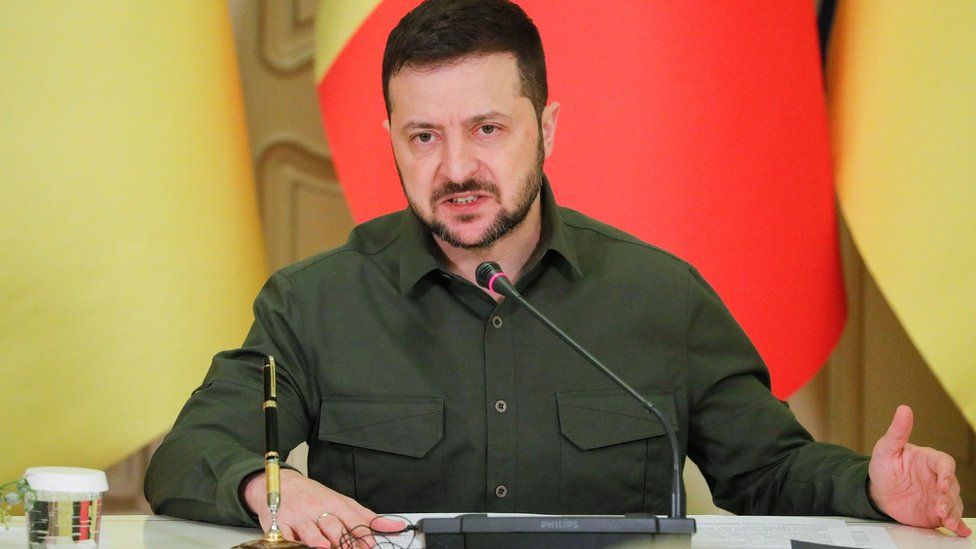
-
-
-
18 hours ago
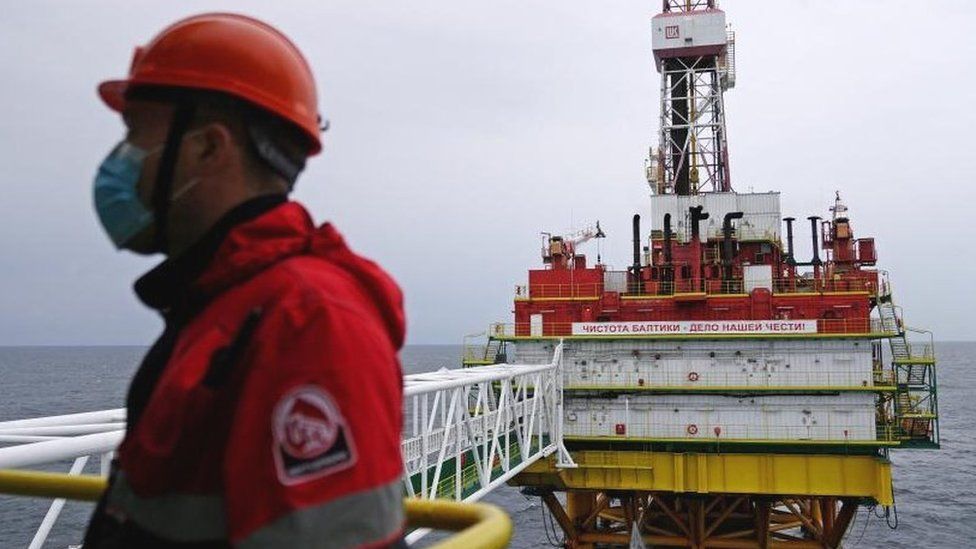
-

